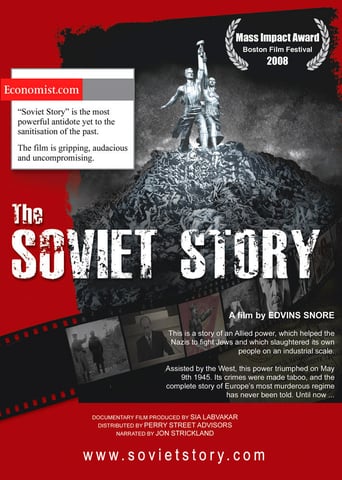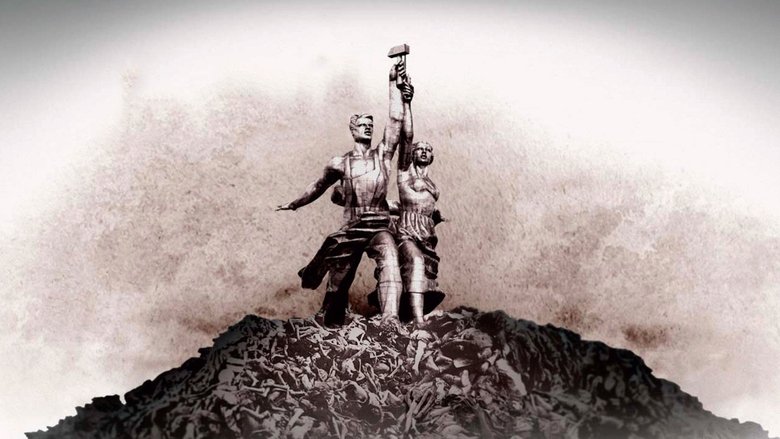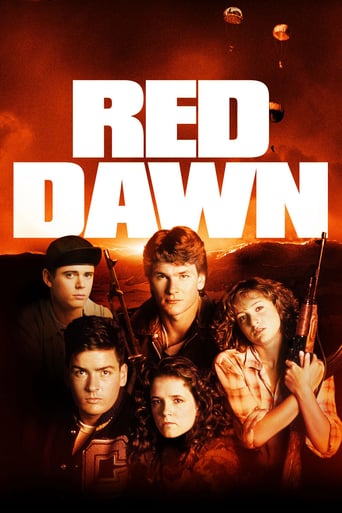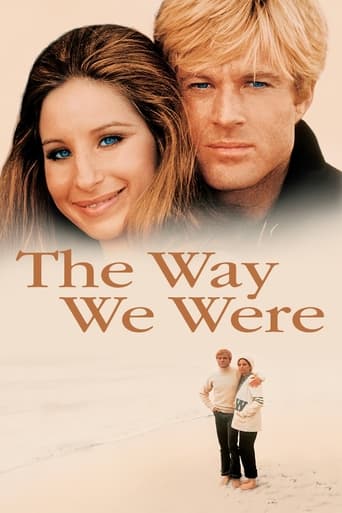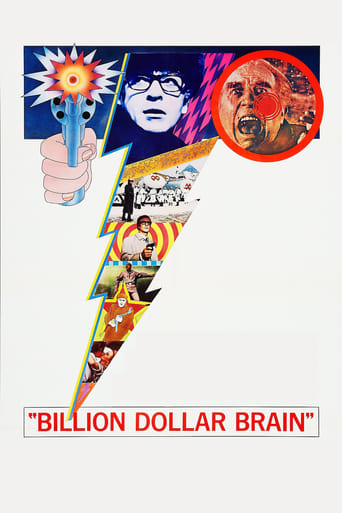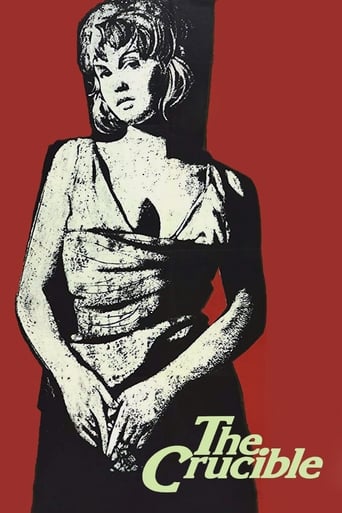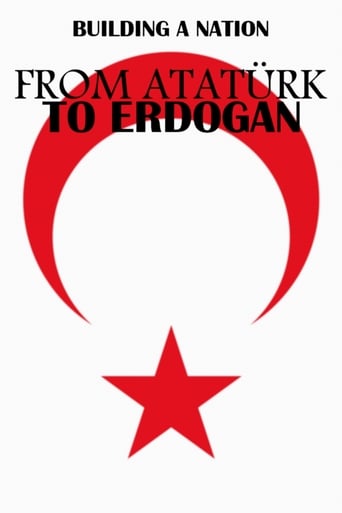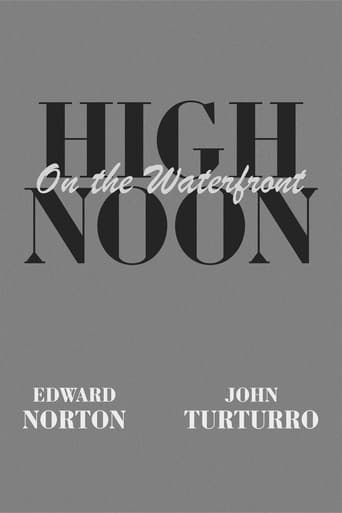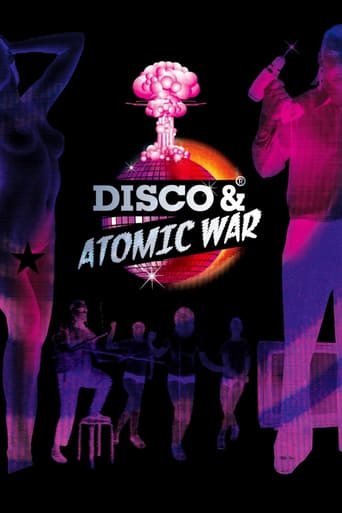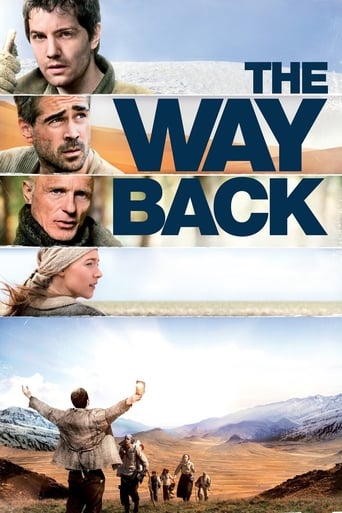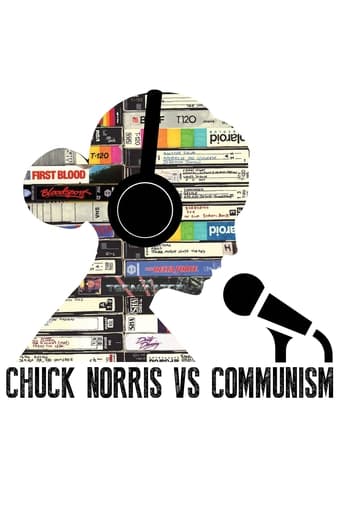The Soviet Story (2008)
“The Soviet Story” is a story of an Allied power, which helped the Nazis to fight Jews and which slaughtered its own people on an industrial scale. Assisted by the West, this power triumphed on May 9th, 1945. Its crimes were made taboo, and the complete story of Europe’s most murderous regime has never been told. Until now...
Watch Trailer
Cast


Similar titles
Reviews
Waste of time
This is a coming of age storyline that you've seen in one form or another for decades. It takes a truly unique voice to make yet another one worth watching.
Strong acting helps the film overcome an uncertain premise and create characters that hold our attention absolutely.
This film is so real. It treats its characters with so much care and sensitivity.
Waiting for this film to end was painful, but I felt I needed to in order to prove my point. The film is titled 'The Soviet Story' when the entire argument is shaped around the totalitarian regime of Stalin. Instead of merely stating the factual evidence behind the atrocities in Stalinist Russia, 'The Soviet Story' tries to tie in his dictatorship with Communist ideology in its entirety, and even demonize the modern Russian state. Clearly the director had little sense of his story's antagonist.Using written quotes from Marx and Lenin, the audience learns in 'The Soviet Story' about the Marxist belief that violence and death will occur in revolutionary uprisings, sweeping away masses of people as part of the process. While the film tried to make these ideas sound ghastly, one only has to turn to the modern western democracy to find its roots in the bloody French Revolution. Weren't entire sects of a society wiped out in that instance? Revolutionary tactics are not exclusive to Communism.The film goes on to say with a negative tone that the Soviet state was content to wipe out entire nations to further the progress of it's superior nation. However this is implying that imperialism is also unique only to Soviet Russia. Did the European colonial powers not exploit and exterminate native nations around the world for hundreds of years? Once again, the totalitarian regime of Stalin and his predecessors did not commit their heinous crimes in the name of socialism, but rather, in the name of power.While 'The Soviet Story' is a great example of government manipulation, political oppression, and megalomaniacs, it does not justify it's own doomed thesis that the entire Soviet State was founded on oppression. The short scene on fate of Trotsky (who was a Leninist) is enough to prove it was Stalin, not Lenin who was the true villain. I have only taken a high school history class, yet I have learned that Lenin was strongly opposed to Stalin being his predecessor.
The Soviets and the Chinese Communists killed about 100 million of their own peoples. There is not the slightest historical doubt about this. The fact that some imbecile here says this is propaganda and "why bother" since the USSR disintegrated 20 years ago merely amplifies one of the film's points -- that the history is being whitewashed. We continue to hear, almost daily, about Hitler this, Hitler that, Hitler the other thing ... and he was a freakin' pantywaist compared to the Soviets and Chicoms. It matters, particularly since the so-called intellectual left in the West was complicit, starting with Walter Duranty and his phony reporting for the NYT. It's a reminder that today's fathead libs don't want. I am also quite down on the GOP, so don't lump me with them. I am a libertarian, actually, and find nothing to respect in either major political party in the U.S. today. However, it's the left that bears the greatest complicity in the murder of millions, by providing cover for the killers. Screw 'em.
For his in-depth survey of Soviet crimes against humanity, including Soviet cooperation with the Third Reich, Latvian director Edvins Snore was burned in effigy by Neo-Soviet Russians. It is an ominous badge of honor.Soviet Story acts as an effective corrective to the popular notion that the Communist experiment only turned horrific when Stalin ascended to power. The film documents orders mandating mass executions, estimated in the tens of millions, originating with the father of the revolution, Lenin. Still, it is devilishly difficult to outdo Stalin's sheer capacity for terror. For instance, the deliberate use of famine to pacify Ukraine is explained here in chilling detail. In a crime against humanity largely ignored by the West, seven million Ukrainians were intentionally starved in the cordoned Republic, as foodstuffs were confiscated at gunpoint by the Red Army.The heart of Soviet Story explores the close ideological similarities and barbaric collusion between the Soviet Socialists of Stalin and the National Socialists of Hitler. There is an eerie sequence juxtaposing thematically similar propaganda posters from both regimes, side-by-side on-screen. Even more damning are the documents Snore uncovers establishing close links between the SS and the Soviet NKVD (the precursor to the KGB), discussing among other issues, the "Jewish Question." They did not just talk—they carved up Poland between themselves, and at Stalin's prompting, staked their claims to the rest of Europe.Soviet Story is most devastating when discussing the ways in which the more advanced Soviet killing machine served as the inspiration and model for the Holocaust. According former Soviet intelligence officer Viktor Suvorov: "A delegation of German Gestapo and SS came to the Soviet Union to learn how to build concentration camps." Snore has produced a chilling indictment of the Soviet experience with socialism. He calls some very convincing witnesses, including Bukovsky, and the eloquent Cambridge historians Norman Davies and George Watson. As evidence, he produces some shocking archival film and documents. However, as the film makes clear, none of those who did (and still do) the Soviet dirty work has ever faced justice for their crimes. All told, Snore has produced a passionate but thoroughly reasoned case against the Soviet regime.
This documentary focuses on the atrocities committed against innocent people, mainly by Stalin and other high ranking Soviet leaders in the name of Marxism and Communism prior, during, and after the Second World War.The documentary consists of much original footage, newspaper clips, interviews with witnesses and even some present day footage, all very well edited and cut.The story told in this documentary is the best one I've yet to see regarding horrible crimes committed against humanity, because it is very well substantiated in terms of source-material and historical argumentation. The delight of seeing this educational footage is strengthened even more due to its addressing of one of the most inconceivable facts in the post-WWII world: How Adolf Hitler was forever after unconditionally condemned by close to everyone across the globe for his crimes, and how Joseph Stalin was commemorated for aiding the Allies in liberating Europe of fascism, regardless of the fact that in total more than 20 million (some even claim up to 50 or 60 million) people was murdered by the hands of the Soviet Gulag State. A fact which nobody in the western world seems to care about.What this documentary furthermore achieves which is what eventually made me give it the 10th star, was the fact that the story was told very honestly and very unbiased, unlike much historical media, and the scriptwriters have done an extremely well job in mastering the whole aspect of the stories, and not just focused on narrow one-sided details.Regardless of the fact that most people see Hitler as the "far-right", and Stalin as the "far-left", this documentary raises the ultimate question: were they indeed that different, after all?

